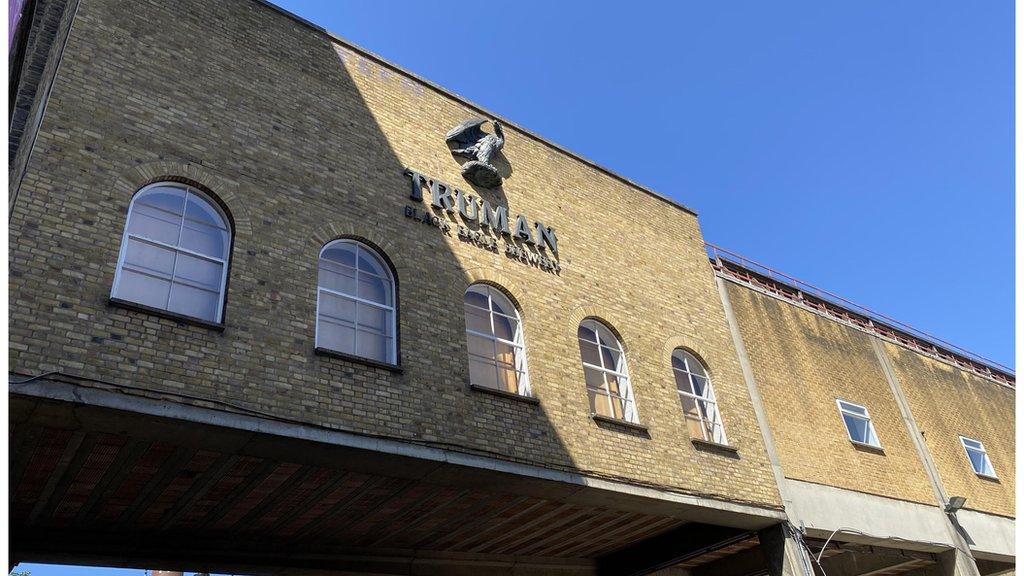Savile Row: Tailors fear for future if proposed developments go ahead
- Published
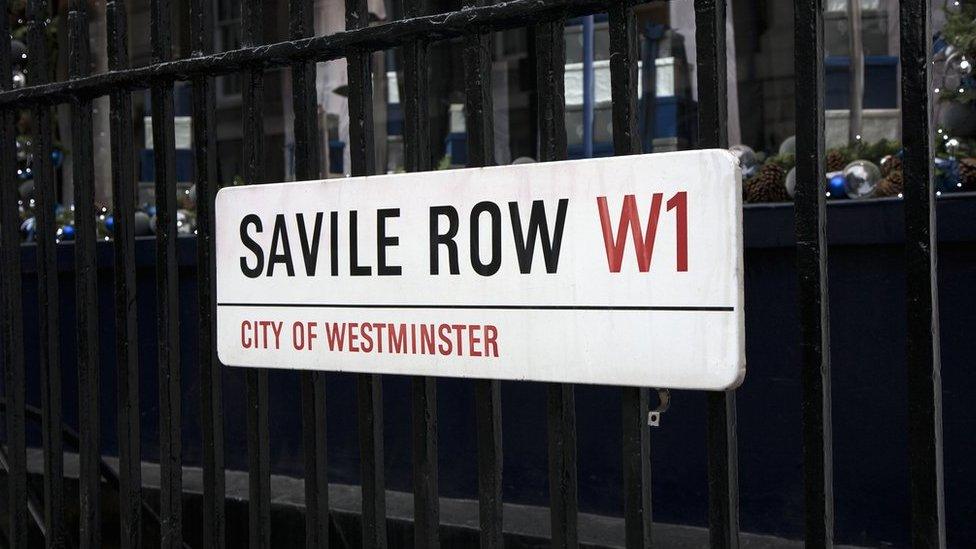
Some tailors on the famous street feel the area will "lose its sense of identity"
Tailors along London's famous Savile Row are concerned proposed developments could mean the area "loses its sense of identity" and potentially put them out of business altogether.
Some of the bespoke suit makers fear their stores will be replaced with office space, restaurants and ready-to-wear shops.
The Pollen Estate, which owns most of the real estate on the iconic street, has submitted plans to create spaces which will not be used by tailors.
Joseph Morgan, manager at Chittleborough and Morgan said: "The tragedy is that Savile Row will be like any other street in the world."
Mr Morgan who has been a tailor on Savile Row since 1969 and dressed the likes of Elton John, Mick and Bianca Jagger, feared it was "losing its sense of identity".
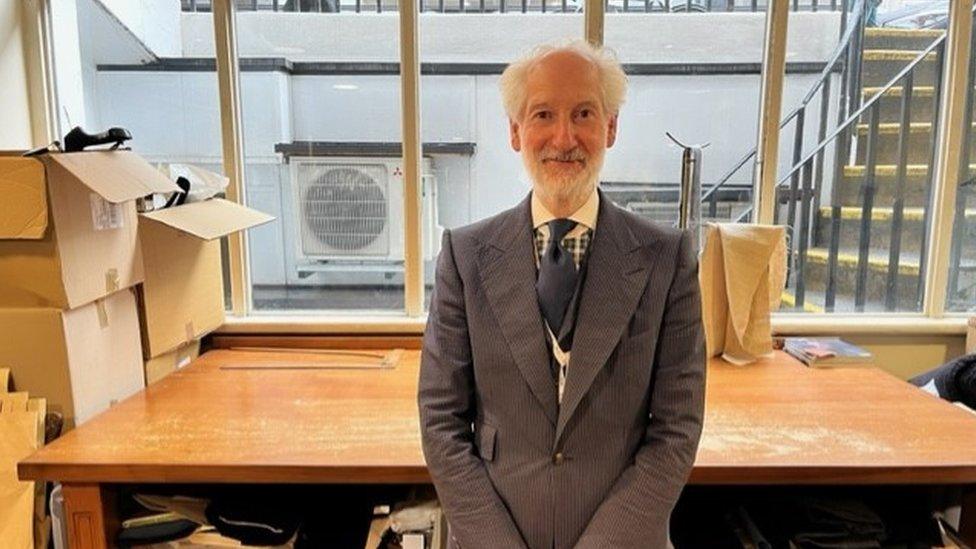
Joseph Morgan fears Savile Row will be "like any other street in the world"
Mr Morgan said he worried Savile Row could lose its bespoke roots and move towards a street of stores selling ready-to wear-clothing.
"In the UK, all the streets are similar, you can buy ready-to-wear anywhere. But you can only get bespoke in London - let's bring back industry," he added.
"It (Savile Row) needs the individual the identity of the bespoke industry, we need the City of Westminster Council to stand up."
One particular development of concern is the revamp of Heathcote House, which if given council permission, would be turned into a retail space and art gallery, according to the Local Democracy Reporting Service (LDRS).
The company's website, external said it would "work to ensure that the non-tailoring retail uses in Savile Row are supportive of tailoring and the success of the street", but some felt that this would not be the case.
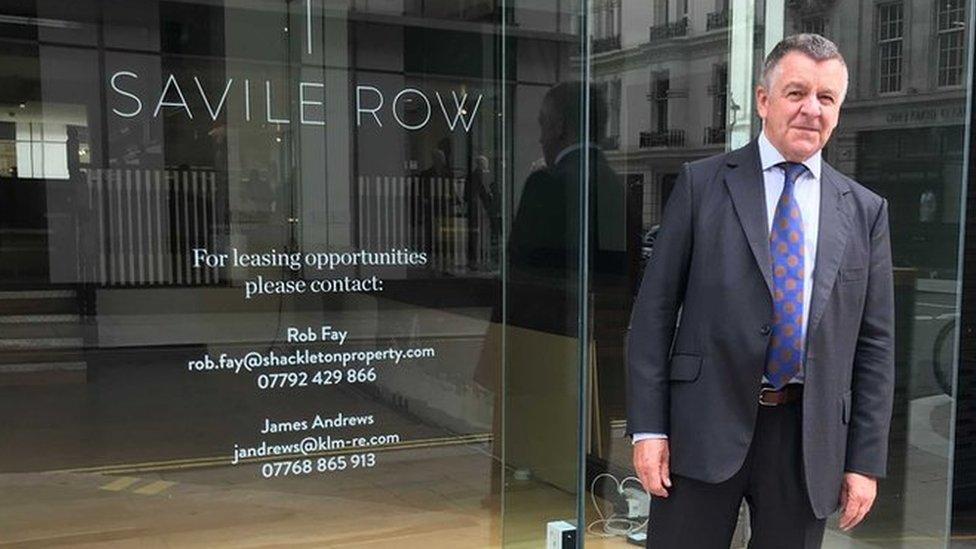
James Cottrell's former store could be turned into office or retail space
James Cottrell, owner of Welsh and Jeffries, was recently forced to close his store due to high rents and the Covid-19 pandemic. The store remains unoccupied.
"The landlord wants us tailors out," Mr Cottrell said.
"It will become an eatery area. We built Savile Row and they will kill it. They (landlords) will do what they can to generate the most rent."
Quan Yingmei has worked in Savile Row since 2003, including a period alongside Mr Cottrell.
"We were quite upset by that (the development plans)," said Miss Quan.
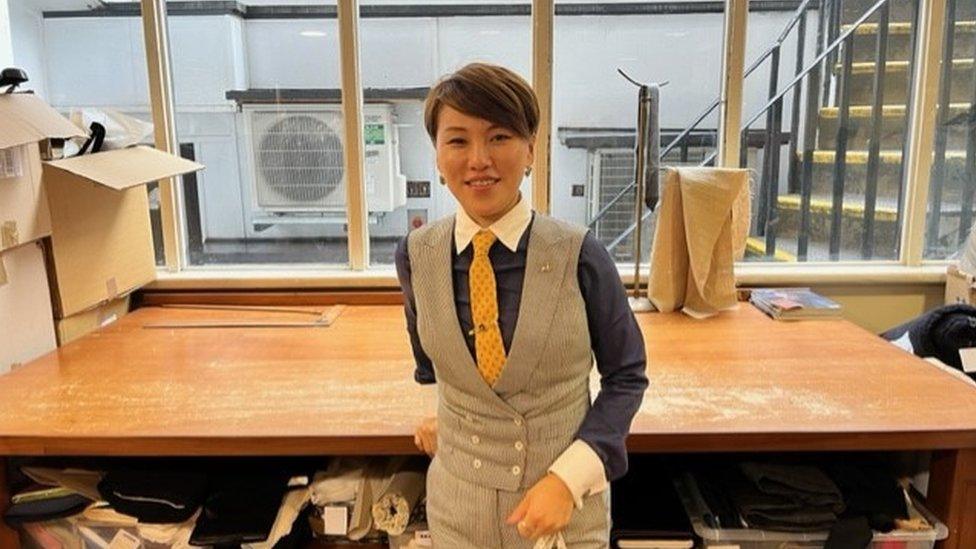
Quan Yingmei believes both local and national government need to intervene to save Savile Row's tailors
She added that Welsh and Jeffries' attempts at moving to a new store on the street were "rejected because we are tailors".
"We made Savile Row famous, not them. We really need protection from the government because this is history," she concluded.
But not all of the stores along the famous street share the view that development will destroy its heritage.
Christopher Boadle, founder of footwear company Arthur Sleep, based on Savile Row, believes developments could help drive new audiences to the area, particularly younger customers with quicker manufacturing processes.
"Arthur Sleep likes to think of itself as the new vision of the Pollen Estates movement, into bringing further relevance to Savile Row," he told BBC London.
"The more people that can come here and spend time on the street the better, visiting all the incredible tailors."
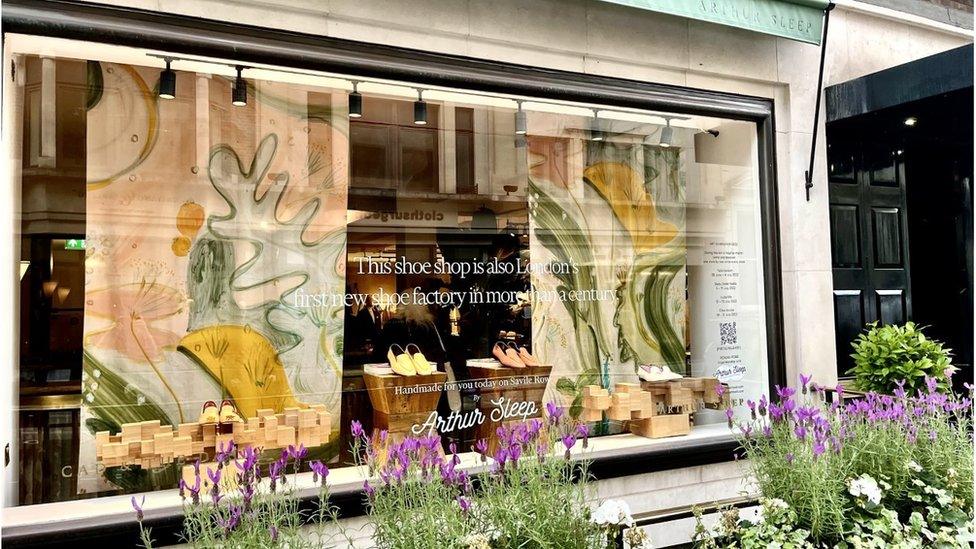
Arthur Sleep believe developments can help bring younger people to Savile Row
Despite welcoming change along the street, Mr Boadle insists that developments must support tailors.
"They are the cornerstones of the street," he added.
"I want to support and maintain them as much as we can. Arthur Sleep is here to bring a new vision and a fresh perspective.
"And that can only support everything the very traditionalists are here to cater for. Ultimately that is why people want to come to Savile Row, to come and experience the craftmanship, which Britain does best."
Daisy Knatchbull, founder of The Deck, the first womenswear store on Savile Row, agrees change is acceptable as long as history is respected.
She said: "Change is inevitable but needs to be in line with the street's history and respects the tailors.
"It is the duty of Savile Row, keeping the history and heritage, and that's the job of the landlord."
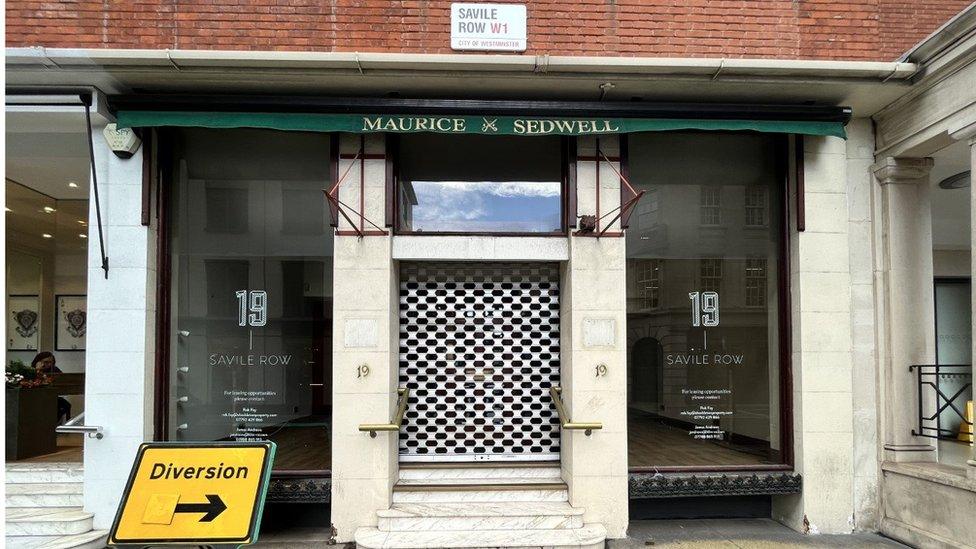
Store owners say they have vacated due to increased rent and business rates
Pollen Estate maintains that tailor stores remains the focus of their development of the street.
In a statement to the LDRS, it said tailors such as Edward Sexton are moving on to the street as well as new bespoke stores, selling streetwear and womenswear.
The statement read: "Savile Row's tailoring and craftsmanship heritage remain at the core of The Pollen Estate's vision for the street, with several recent arrivals to the Row as well as further announcements coming this year."
A spokesperson for City of Westminster Council said: "We do not comment on individual applications, however Savile Row has been the home of bespoke tailoring for nearly 200 years and we have policies in place to protect its unique character."

Follow BBC London on Facebook, external, Twitter , externaland Instagram, external. Send your story ideas to hellobbclondon@bbc.co.uk, external
Related topics
- Published6 November 2019
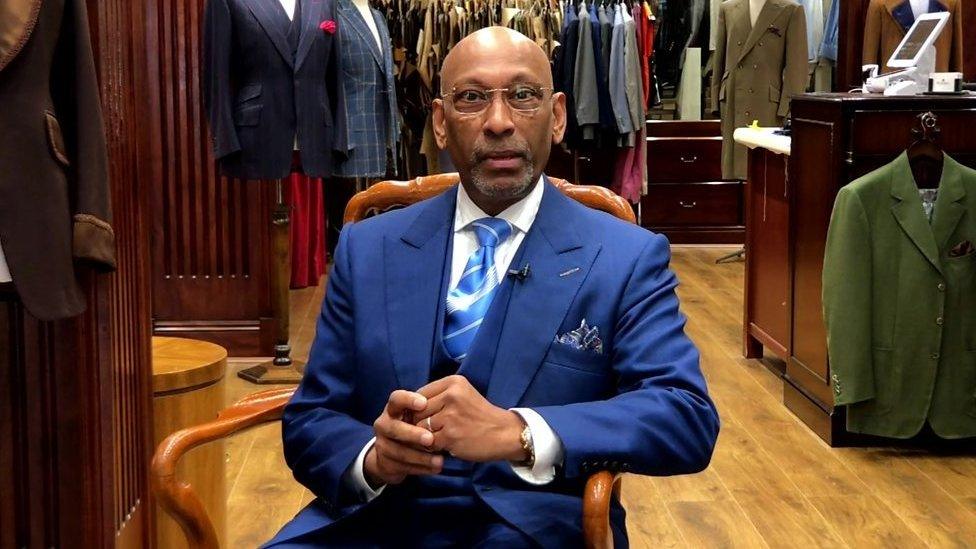
- Published30 January 2021

- Published4 September 2022
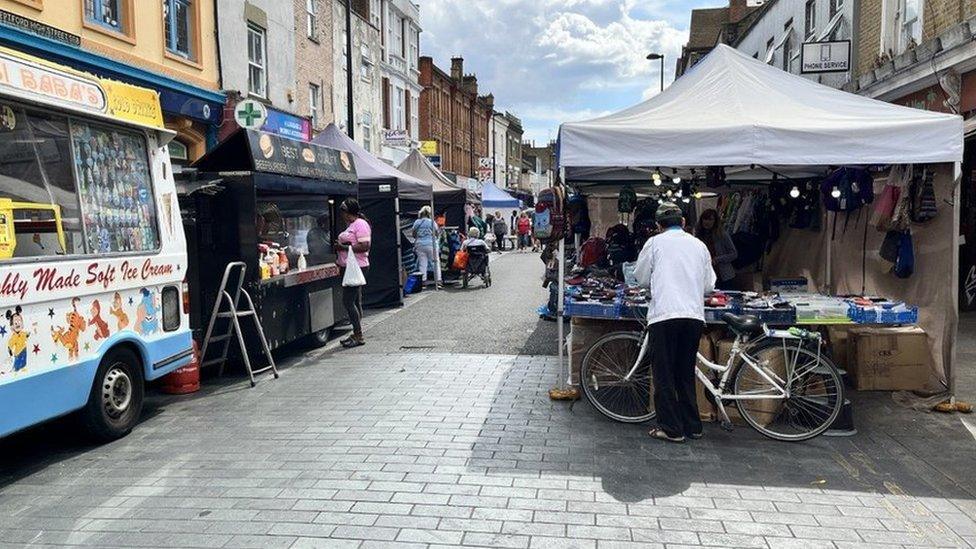
- Published14 August 2022
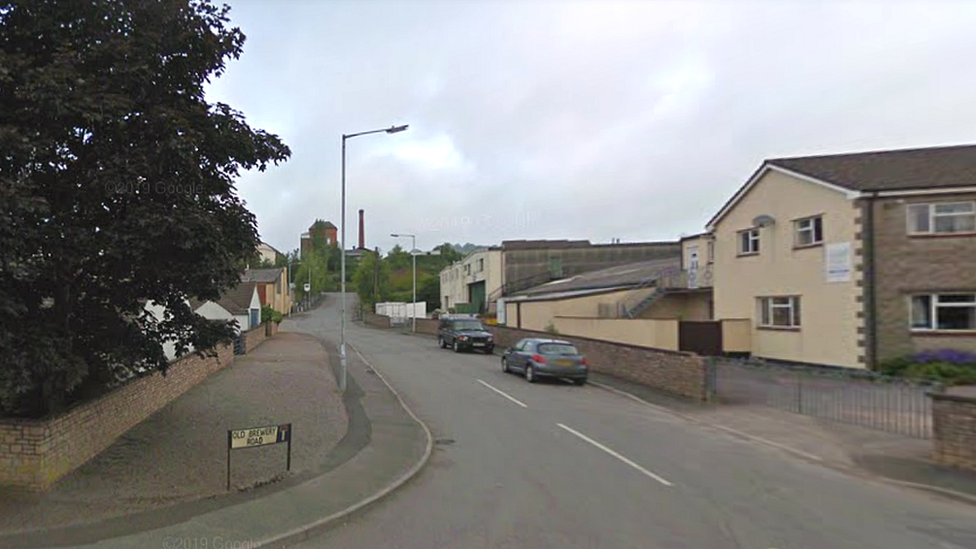
- Published13 September 2022
